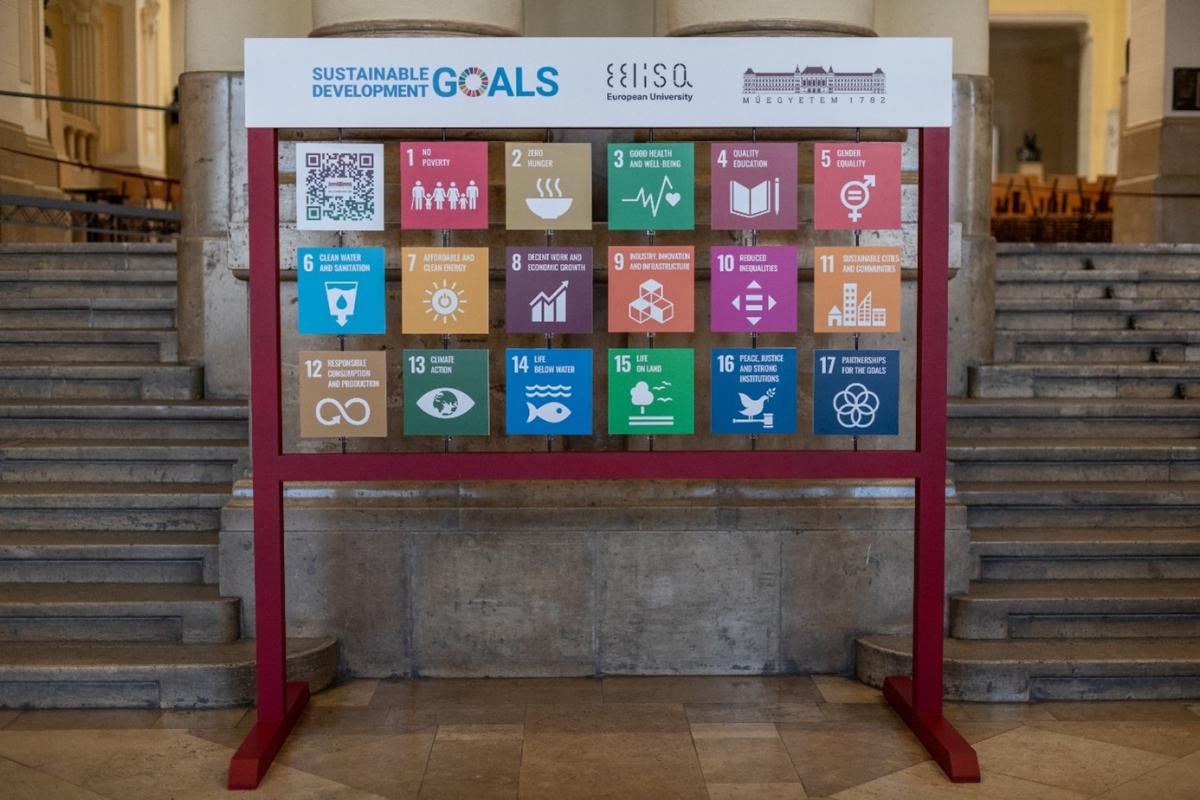News feed
17 goals for a better world – no. 1: no poverty
2024. 03. 12.Launching today, our series of articles entitled “Sustainable Tuesday(s)”, will take a look over 17 weeks at the 17 Sustainable Development Goals (SDGs) set by the UN to make the world a better place.
This time, we will explore in more detail goal no. 1 “no poverty”, which is to:
End poverty in all its forms everywhere.
Donate and help those in need!
The term SDG stands for the 17 Sustainable Development Goals established by world leaders at the 2015 UN summit to set new directions for global development. In a series of articles called “Sustainable Tuesday(s)”, starting today, we will take a look at the 17 Sustainable Development Goals (SDGs) over 17 weeks and show what BME is doing to achieve them, within its own means. You can check out these development goals in a playful way with the help of boards placed at the entrances of the 3 busiest buildings (E, K, Q) on the BME campus. For more information on this topic, you can join the BME GreenHub Facebook group and visit BME’s main website to access our BME for Sustainability platform

One of the fundamental aims of the concept of sustainable development is to create opportunities for all people to escape poverty. [1] Education is one of the best long-term tools for poverty reduction. Education can equip children and adults from poor economic backgrounds with the skills that will help them escape poverty [2]
As one of the leading universities in the country, the BME aims to make it easier for students in need to participate in university education by providing support in various areas based on social conditions, thus in many cases offering a breakthrough for talented students from poor circumstances. Regulargrants based on social needs, the basic grant, the exceptional grants based on social needs, and the traineeship grant are all part of the amounts that students can receive on a social basis. Around 1000 students apply for these each year. Last year, the total of the grants amounted to more than HUF 600 million. When deciding on accommodation in residence halls and assessing students’ applications, social circumstances also mean important points, thereby giving disadvantaged students a better chance. Currently the total number of residence hall slots is 4141.
The University’s Uniform Application and Assessment System and the Code on Fees and Benefits provide all students with extensive information on the administration of the grants available at the University.
The Foundation for Students of the BME and the faculty foundations of the individual faculties can also provide funding for students toparticipate in professional trips and scientific events, if this would not be possible for them on their own.
Students’ daily livelihoods can also be helped by the BME School Union, which aims to facilitate students’ safe employment.
In addition to supporting student participation in higher education, the BME is also engaged in significant work closely linked to the Sustainable Development Goals in many areas. 1 publication, 1 student project, and 4 courses taught are among the activities of several BME faculties related to the topic of poverty eradication. In recent years, students’ theses have studied, among other things, the possibilities of remedial education of the homeless, social construction projects based on concrete examples, but also a DLA thesis entitled “Affordable Housing as a Method for Palestinian Refugee Camps Upgrading in Amman”.
In recent years, students have been able to work with the toolset of crisis architecture or the architecture of peripheral areas, and were even able to contribute with their physical work in the framework of summer programmes to the realisation of specific projects that improve the lives of small communities (e.g.: the joint construction camp of the ULE association and the BME’s URB department, or the construction camp at Perbál with the association Tovább Élni Egyesület).
[1] https://ksh.hu/s/kiadvanyok/fenntarthato-fejlodes-indikatorai-2022/sdg
[2] https://www.coe.int/en/web/compass/poverty
DF-KK (BME a Fenntarthatóságért Munkacsoport)
